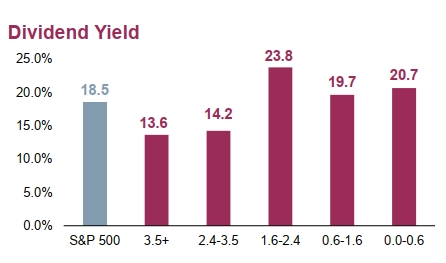OK, so I looked at ARTFX. Unfortunately, the history only goes back to 2014, so we can't see how it performed during the 2000 and 2008 periods. But even over this short period, it performed very similarly to a 40/60 blend.
http://bit.ly/2KXAZW0 << short link to portfolio visualizer
http://bit.ly/2KWoWIN << added Wellesley; same story
---------------------------
And yet, when I plug these into Portfolio Backtester, it shows that VTI outperforms a blend of VIG/VYM. And if I add in some bonds to make the performance about equal, the standard dev is very, very close.
Where's the advantage? Can you demonstrate the advantage, rather than just claim there is one? This isn't "poo-poo-ing" anything, it is letting the numbers talk.
http://bit.ly/2L7T9EL << short link
-------------------------------
So another back-test. Here VYM under-performs the total market (CAGR of 7.7% vs 8.44% for VTI), though with a small reduction in std dev (14.17% vs 15.24% for VTI).
If we adjust for near-equal performance with an 81/19 AA to bonds, the VTI/Bond mix has significantly lower std dev ( 11.86% vs VYM's 14.17%). This is to Bernstein's point (I think it was Bernstein, can't swear to it), you are better off adjusting the AA, than to try to goose returns with high-yield. He didn't find any alpha in the high yield, and neither have I.
http://bit.ly/2S0YkXN << short link to back-test


